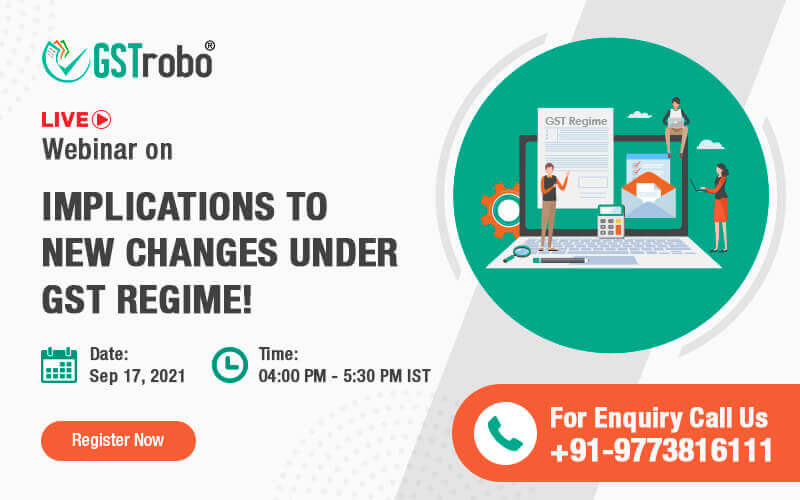GST Amendment Act 2018 applicable from 1st February 2019
A small highlight of the GST Amendment Act 2019 released by government and its changes applicable from 1st February 2019 is as follows:
1. Multiple GST Registration can be obtained by a person having multiple place of business in same state or union territory.
2. GST Registration is mandatory only for E-commerce operator who are required to collect Tax at Source(TCS) under section 52
3. Registered persons may issue consolidated credit/debit notes to a party in respect of multiple invoices issued in a Financial Year to that party
4. Registration shall be remain temporarily suspended while cancellation of registration is under process, so that the taxpayer could get relief of further continued compliance under the law, in other words no compliance required for the period from application of cancellation of registration to date of order of cancellation.
5. The Liability for payment of tax on outward supplies shall be joint i.e. both of the supplier and recipient (in case recipient avails input tax credit on self-assessment basis and supplier has not paid tax).
6. Recovery of taxes, interest, fine, penalty etc. can be made from distinct persons, even if such distinct persons are present in different State/Union territories.
7. Upper limit of turnover for opting of composition scheme shall be raised from Rs. 1cr. to Rs. 1.5 Cr.
8. A composite dealer (in goods) shall be allowed to supply services (other than restaurant services) for a value not exceeding-
Higher of 10% of turnover in the preceding financial year or Rs. 5 lakhs
9. The threshold limit of turnover for exemption from registration in the states of Assam, Arunachal Pradesh, Himachal Pradesh, Meghalaya, Sikkim and Uttarakhand shall be increased to Rs. 20 lakhs from Rs. 10 Lakhs.
10. In case of purchase of notified goods from unregistered supplier, Reverse charge mechanism shall be applicable to notified registered persons.
11. Following transactions shall not be treated as supply (i.e. no tax payable under GST) under Schedule III:-
a. Supply of goods from a place in the non-taxable territory to another place in the non-taxable territory without such goods entered into India
b. Supply of warehoused goods to any person before clearance for home consumption
c. Supply of goods in case of high sea sales
12. Input tax credit would now be available in respect of the following:-
a. Most of the activities or transactions specified in Schedule III;
b. Motor vehicles for transportation of persons having seating capacity of more than thirteen (including driver), vessels and aircraft;
c. Services of general insurance, repair and maintenance in respect of motor vehicles, vessels and aircraft on which credit is available; and
d. Goods or services which are obligatory for an employer to provide to its employees, under any law for the time being in force.
13. Commissioner may extend the time limit for return of inputs and capital sent on job work, up to a period of 1 year and 2 years, respectively.
14. If RBI would permit, Supply of services outside India shall be regarded as exports, even if payment is received in Indian Rupees
15. Place of supply shall be outside India, where job work or any treatment or process has been done on goods temporarily imported into India and then exported out of India without putting them to any other use in India except the uses which were necessary for the purpose of such job work or treatment or process
16. RCM applicable without any exemption limit w.e.f. 01-02-2019 for a class of registered persons in respect of supply of specified categories of goods or services or both received from an unregistered supplier as per Notification No.01/2019 – Central Tax (Rate) and amended section 9(4) of CGST Act.
Till the date neither class of registered persons nor specified categories of goods prescribed by the Govt. so until and unless notified RCM will not applicable.
Now scope of section 9(4) reduced to specified dealers or specified goods or services
Though section 9(4) is effective from 1st Feb it would be ineffective.

